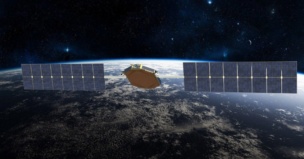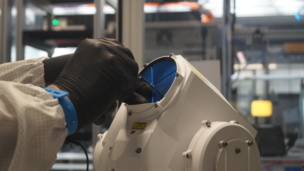The US is at risk of losing leadership in LEO to China if commercial space stations do not come to fruition before the ISS plunges into the sea, two industry officials told lawmakers on Wednesday.
Background: The ISS is set to be decommissioned in 2030 and commercial providers are preparing to pick up the mantle of hosting people and experiments aboard commercial LEO destinations (CLDs). At the hearing, officials from two companies building commercial space stations worried that China’s Tiangong space station could become the only habitat in LEO if commercial stations aren’t operational within the next six years.
“If commercial options are not available ahead of decommissioning, our current partner nations will have no choice but to gravitate toward China,” said Dylan Taylor, chairman and CEO of Voyager, which is building the Starlab station.
Mary Lynne Dittmar, Axiom’s chief government and external relations officer, called for an “immediate course correction” by lawmakers. “If we have a gap in American presence in low Earth orbit, the only winner will be China.”
Money problems: Rep. Zoe Lofgren (D-CA), ranking member of the House Science, Space and Technology Committee, blamed the “dysfunctional appropriations process” in part for putting America’s leadership in LEO at risk.
“If we in Congress aren’t prepared to appropriate the required resources, we will not be successful,” Lofgren said. “Continuing to operate the ISS while also procuring a deorbit vehicle and providing support to commercial LEO destinations really does require sustained investment if we’re going to make sure America stays first in low Earth orbit.”
Recommendations: Dittmar recommended several budgetary priorities, including maintaining stable funding for the ISS, paying for a vehicle to deorbit the station, accelerating contracts to companies building CLDs, and funding the CLD program at $295M.
She also recommended extending operation of the ISS past 2030 until at least one commercial station is up and running, if needed.




